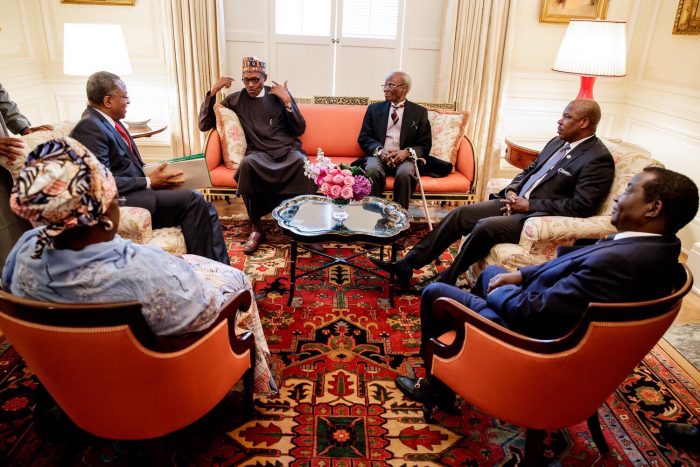The report shows a fourth successive quarterly growth in Capital Importation into Nigeria, since the second quarter of 2017 (Q2 2017).
The sum of $6,303.63 million was the value of total capital imported into Nigeria during the period which shows a 17.11% growth from the last quarter – Q4 2017 – with a year on year increase of 594.03%.
- Foreign Portfolio Investment (FPI) which grew from $3,477.53 million in Q4 2017 to $4,565.09 million in Q1 2018 was the major reason for the increase in Nigeria’s capital inflow.
- FPI alone accounted for 72.42% of the total Capital Importation into Nigeria during the quarter under review.
- FPI has been growing faster than the other types of Capital Importation since Q2 2017 remaining the largest contributor with 35% in Q1 2018.
- It stood at $4,565.1 million with a growth of 31.27% from the last quarter of 2017.
[READ MORE: Nigeria’s Foreign Portfolio Investment Vs Foreign Direct Investment]
Foreign Direct Investment (FDI) contributed 3.91% while Other Investment accounted for 23.67% of total Capital Importation.
- FDI’s still pale in comparison to Portfolio Investment and it reduced by 83% to $246.62 million in Q1 2018 to represent only 3.9% of the total capital imported.
- However, increase in Money Market Instruments with a value of $3,527.60 million was the main reason for the thick growth recorded by Portfolio Investment in the first quarter of 2018, with a lion share of 77.27% out of the total Portfolio Investments.
- Though Other Investments stood at $1.49 billion in Q1 2018 to reduce by 2.29% from the last quarter of 2017, it nevertheless grew by 289.25% when compared to the same quarter in 2017.
- It contributed 23.67% to Capital Importation into Nigeria in Q1 2018. Loans with a figure of $1,27 billion have a contribution of 85.02% of Other Investments.
Equities dominate
During the quarter, Capital Importation into Nigeria was dominated by shares.
- Capital inflow in the form of Shares grew by 3.05% to $3.79 billion from $3.68 billion reported in the previous quarter while the percentage share of equities to total Capital Imported reduced from 68.37% in Q4 2017 to 60.17% in Q1 2018.
- However, the leading sector for foreign capital inflow still remained Banking, with 18.7% of the total Capital Importation in the first quarter of 2018 in a value of $1.18 billion.
- Financing stood at $485.41 million as the second leading sector followed by Production, Servicing and Telecoms sectors in that order.
[READ MORE: Nigeria receives $17.5 billion diaspora remittances in 2019]
Abuja takes over
- Meanwhile, Abuja, which overtook Lagos in the previous quarter attracted $3.54 billion to remain the highest state that received foreign Capital Inflow during the period, with a growth of 32.24% from Q4 2017.
- Lagos stood in the second position with a marginal growth of 4.59% from $2.55 billion in the last quarter to $2.67 billion in the period under review while Akwa Ibom was third with $43.62 million Capital Imports.
Capital Importation by Countries
- United Kingdom is still the number one nation in terms of Capital Investment in Nigeria with $2.25 billion which accounted for 35.73% of the total capital inflow in Q1,2018.
- The UK increased her Capital Investments in Nigeria by 39.89% from the last quarter.
- The United States was second with $1.26 billion accounting for 19.99% of the total Capital Imports. South Africa and Ghana were third and fourth with $493.22 million and $380.14 million capital inflows respectively.
- That of South Africa in particular increased by 79.29% from Q4 2017.
Leading Banks
- Lastly, Standard Chartered Bank was the bank through which the highest share of Foreign Capital flowed in the quarter under review, with 25.49% of the total capital inflow.
- It was followed by Access Bank, Ecobank, Zenith Bank, Stanbic IBTC Bank and Guaranty Trust Bank in that order.
- The six banks jointly accounted for 81.90% of the total capital Imported into Nigeria in Q1 2018.
[READ MORE: Nigeria received $5.82 billion capital inflows in Q2 2019, down by -31.41%]
Why it matters
The huge increase in the inflow of Capital Imports into Nigeria, especially Portfolio Investment, is typically a positive development for will the Nigerian Capital Market.
- Higher FPI creates the liquidity that can sustain market growth, particularly for stocks. Investments in the capital markets also reflect the spate of equity investments that have taken place in the Nigerian Economy over the last 6 months.
- Improving capital importation translates to higher external reserves. Nigeria’s external reserves are close to $48 billion and have helped stabilize the exchange rate.
- Improving FDI is mostly sought after as it reflects investor confidence in investing in development areas of the country. FDIs have always been lower than FPIs.
- The downside risk with FPIs inflows is that a threat to the economy typically results in its immediate outflows. This is why it is often referred to as hot money.











